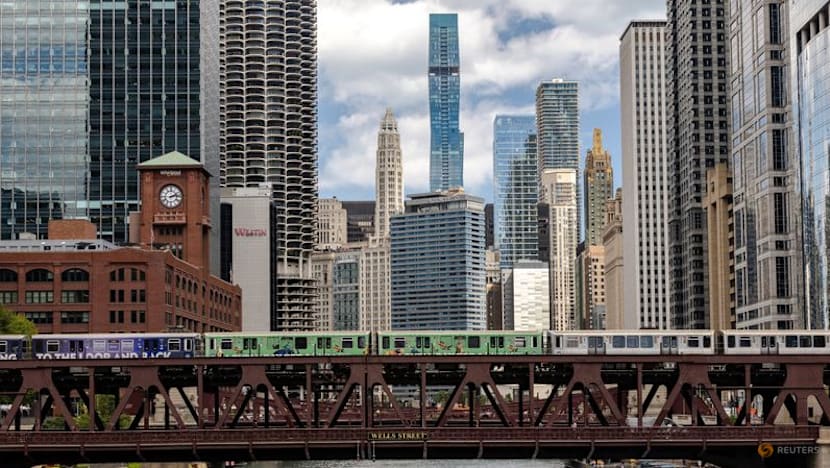'We're going in': Trump to send National Guard troops to Chicago

A subway train travels on an elevated track above the Wells Street bridge in Chicago, Illinois, US on Aug 25, 2025. (Photo: Reuters/Jim Vondruska)
WASHINGTON: President Donald Trump said on Tuesday (Sep 2) he would deploy National Guard troops to fight crime in Chicago, an extraordinary effort to militarise the country's third-largest city that was likely to trigger a legal battle with local officials.
"We're going in. I didn't say when, but we're going in," Trump told reporters at the White House.
Chicago Mayor Brandon Johnson swiftly condemned the action.
"He just wants his own secret police force that will do publicity stunts whenever his poll numbers are sinking, whenever his jobs report shows a stagnating economy, whenever he needs another distraction from his failures," he told reporters.
Hours earlier, a federal judge blocked Trump's administration from using the military to fight crime in California, a ruling that does not apply to other states. But the judge said that Trump's stated desire to send troops to Chicago and other cities provided support for his ruling.
Since taking office, Trump has attempted to broaden the role of the military on US soil, which critics say is a dangerous expansion of executive authority that could spark tensions between the military and ordinary citizens.
Trump has issued a barrage of executive orders and taken other unilateral steps to achieve policy goals ranging from curtailing immigration and cutting the size of the federal workforce, to ending affirmative action and bringing elite universities and law firms to heel.
MORE AGENTS ON THE WAY, PRITZKER SAYS
Illinois Governor JB Pritzker said after Trump spoke that he had learned from reporters that the Trump administration has "gathered ICE agents and military vehicles, and that there are more ICE agents that are on the way".
He said the Trump administration was staging the Texas National Guard for deployment in Illinois, along with federal agents from ICE, Customs and Border Control, the Department of Homeland Security and other agencies.
He said Trump would position armed federal agents and stage military vehicles on federal property such as the Great Lakes Naval Base, including individuals relocated from Los Angeles.
The Republican president said he would "love to have" Pritzker, a Democrat, call and request troops, but "we're going to do it anyway".
"We have the right to do it," Trump said, adding that the federal intervention would extend to Baltimore as well.
Johnson, also a Democrat, said over the weekend that Chicago police will not collaborate with any National Guard troops or federal agents if Trump deployed them to the city as threatened.
Pritzker, whose name has also been floated as a possible 2028 presidential candidate, said the state was able to gather more details from "unauthorised patriotic officials inside the government and from well-sourced reporters" about Trump's plans to bring military personnel to the city.
LIMITS TO PRESIDENTIAL POWER?
Trump has been threatening to expand his federal crackdown on Democratic-led US cities to Chicago, casting the use of presidential power as an urgent effort to tackle crime even as city officials cite declines in homicides, gun violence and burglaries.
Trump has much less power over Chicago and Baltimore than he does over Washington, DC, where, as president, he holds more sway since it is not a US state.
Trump is almost certain to face legal challenges if he uses a provision known as Section 12406 to send National Guard troops from Republican-led states into Democratic strongholds.
Some Republican governors have sent hundreds of National Guard troops to Washington at Trump's request. The president has depicted the capital as being in the grip of a crime wave, although official data shows crime is down in the city.
Chicago has long had high levels of gun violence, but crime, including homicide, has declined in the last year.
In July, the Baltimore police department said there had been a double-digit reduction in gun violence compared to the previous year. The city has had 84 homicides so far this year, the fewest in over 50 years, according to the mayor.












